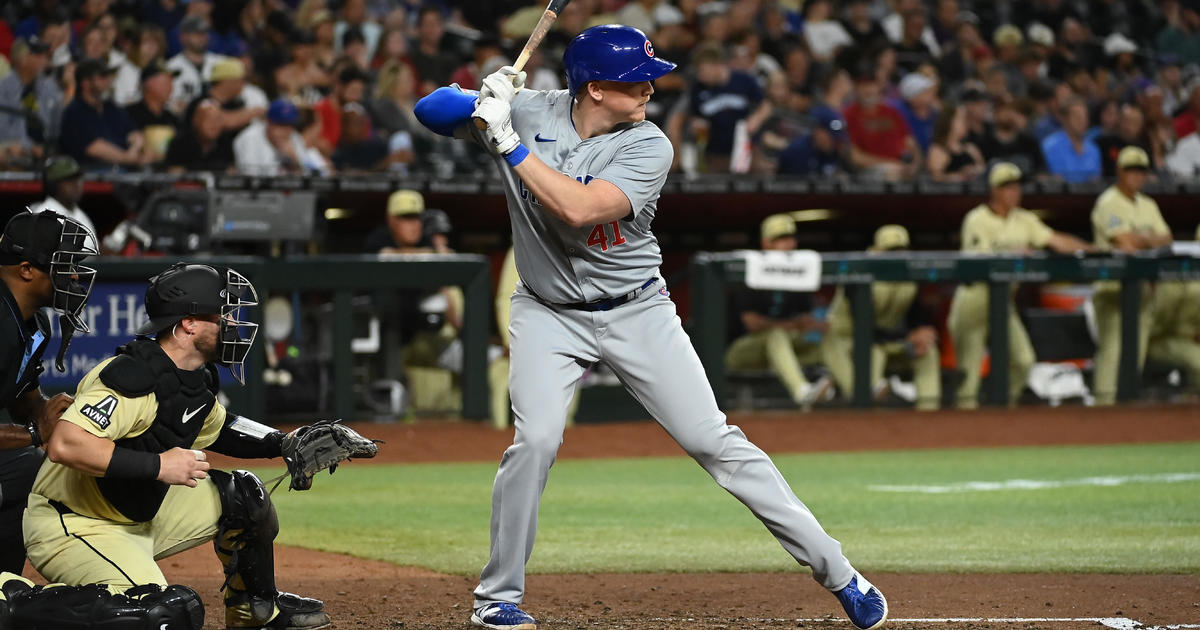Lindholm: Preview Of The 2014 Cubs, Part 1--Revenue
(CBS) -- With spring training less than a month away, it's time to begin reviewing the 2014 Cubs.
I'll begin with the most important piece of any team: the revenue side. With no salary cap, and spending constraints mostly at team discretion, revenue can be the determining force between success and failure. Since the Cubs are at important crossroads both on and off the field, it's useful to review their revenue components.
Forbes baseball team valuations look good on the surface -- the Cubs are valued at an even $1 billion, good for 4th-best in baseball; and generate revenues of $274 million and operating income of $32.1 million, the best in baseball. This was accomplished by having one of the lowest payrolls in baseball, around $62 million. This is a good payroll to have if a team is bad, and has plans in place to spend their money wisely and invest in assets like the farm system and international player procurement that can deliver future value and success.
The Cubs' debt-to-value ratio is the highest in baseball, which can be a problem going forward. Forbes includes stadium debt in this value, and since the Cubs don't have any, this number will go even higher when the renovations begin. Money going toward debt service is money unavailable for use elsewhere throughout the organization, and the question is if this debt is hampering Cubs' spending plans. The public answer is no, but others suggest this might not be the case. A 58% debt-to-asset ratio is troubling. How troubling? Bud Selig says it's not a problem.
The Cubs averaged just over 32,600 in per-game attendance game in 2013, a drop of almost 3,000 fans per game from 2012, and down from their peak of 40,000+ in 2008. At the most conservative, the loss of these 8,000 fans translates into almost $33 million in yearly revenue, assuming $50 per fan. The number is likely far higher, and it's a very legitimate question if factors such as a weakened economy, an aging fan base, and higher ticket prices will allow for attendance to rebound. The Cubs are counting on it--almost any revenue plan was predicated on close to full capacity, and that attendance drop will not reverse overnight. It can be done, and sooner rather than later if a better team coupled with a better Wrigley experience can come together at the same time, but this is one big "if."
The Cubs' broadcast contracts are up for bid, and the assumption they'll get money anywhere near what the LA Dodgers received needs to be tempered in reality. Not all baseball teams are getting rich with new contracts--baseball is not the NFL and discovering the upper limit to TV and radio revenue. The Astros signed a deal and aren't available to 60% of Houston homes, since cable providers won't pay the carriage fees for inferior Astros baseball. The Cubs are different--they have a dedicated fan base, and their deal will be better than most in baseball, but to assume it will be two or three times the current $50 million is pure speculation. It could happen, but in this economic climate it isn't written in stone.
The last component is Wrigley renovation. This will generate increased revenue opportunities from numerous sources: in-stadium advertising, better concessions, naming rights, maybe even parking revenue since the parking sure isn't good today. The total revenue, and when those dollars will be available, no one knows. Depending on when ground is broken, it's probably 3 years from seeing revenue from all the possibilities an improved Wrigley Field can deliver. If Fenway Park renovations can serve as a benchmark, there is tremendous value to be unlocked from a 21st Century Wrigley Field.
The Cubs have two advantages over almost every other team in any sport--icon status as the oldest professional team in America, and a recognizable logo known worldwide. A common belief is the Cubs are flush with cash, and only a tight-fisted Ricketts family is keeping the Cubs from spending wildly in free agency to make immediate improvements. This will be the focus of my next post, but suffice it to say it's a rare team that spent its way to a World Series championship. Team revenue is often a lagging indicator--revenue often follows success, instead of causing it, as the White Sox can attest. The Cubs need the increased revenue an improved Wrigley Field and enhanced media deals can deliver to generate the dollars to find and develop one-of-a-kind talents like Masahiro Tanaka. It won't come cheap, and the Cubs will need every penny they can generate to make these kinds of deals. Talent on the field will determine success or failure, and revenue will be a major factor in talent acquisition.
Follow Scott on Twitter at @ScottLindholm



